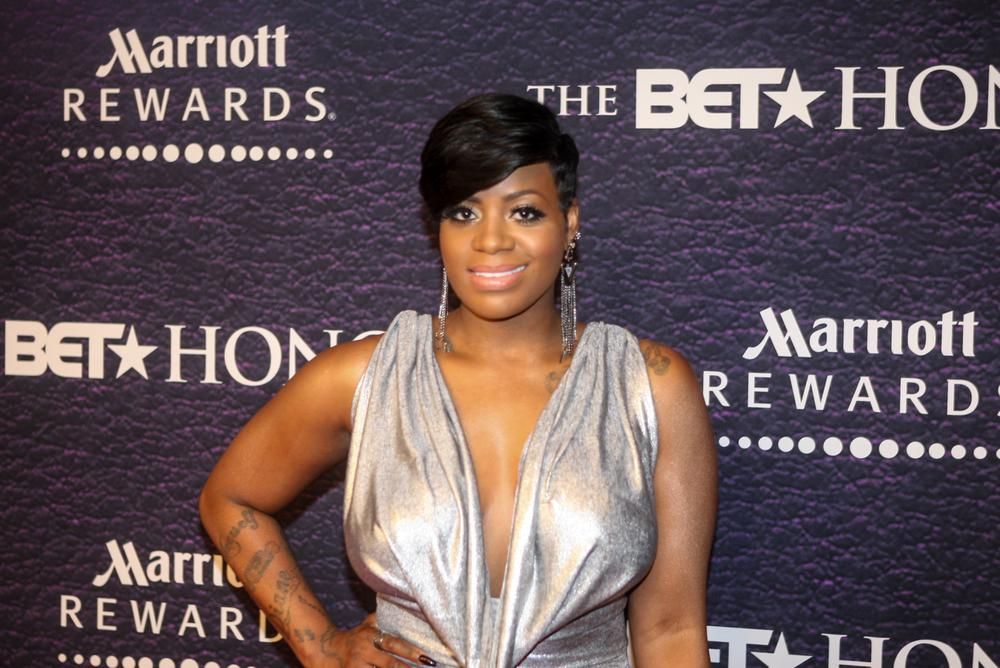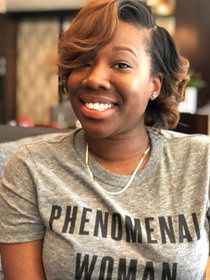Exclusive Interviews

Ad
“I'm sorry. My momma is tryna talk to me while I'm on the phone with you," Fantasia Barrino apologizes in a soft-toned small voice over the phone. It's quite surreal to be speaking to the woman I cast votes for on American Idol when I was just 16 years old. Back then, my entire family tuned in weekly, completely captivated by the North Carolina native's soulful performances. I vividly remember how she'd bend and transform classics like "Chain Of Fools" and make them her own. Little Patti LaBelle, as she was quickly nicknamed, would sweat, kick off her shoes, and allow her gospel roots to shine. She gave everything.
Now, after 13 years of career highs and personal lows, the 32-year-old singer is in the middle of discussing “I Made It," a song from her new album The Definition Of... that puts her church roots and rock influences on full display. It's also her favorite record. “It is my gospel song and I wanted to end the album how I started my career, which was singing in church," she explains in a Southern-soaked accent.
What she doesn't mention until later is that the track is incredibly indicative of how far she's come.
“That song just talks about how I made it through things most people didn't think I'd make it through."
American Idol
Fantasia's singing career started in front of the world. In 2004, a then 19-year-old Fantasia, who grew up listening to the likes of Prince, Sheila E, Frankie Beverly, and Maze, was crowned the winner of American Idol. In just a few months, she skyrocketed and quickly felt the whirlwind of fame. As a young, inexperienced singer who just won a national singing competition, the road to fame was mapped out for her by the powers of the television network, from managers to lawyers to the songs she was expected to record. “You don't really get the option to say what you really want to do. When you win, you're assigned to a management company, you're signed to a label. You don't really have an opportunity to say what you want to do and what you don't want to do. And that can be very, very tough."
Though she was caged creatively, her debut album Free Yourself, birthed from Idol orchestration, eventually went platinum and was Grammy-nominated two years later. Her second and third studio efforts, Fantasia and Back To Me respectively, received much of the same success, earning her Grammy nods, a Grammy win for “Bittersweet", and landed her on Broadway's rendition of The Color Purpleas Celie.
“I thank God for the favor that was on my life and the opportunity that I was able to do outside of just the music," she says, describing this critical time of her career. “I was able to do Broadway, I was able to do my own Lifetime movie, and in all of that, I was able to show the people that I can do a little bit of anything if I put my mind to it."
As Fantasia continued to create songs, from a fan's perspective, the music never faltered. Receiving largely positive reviews, her now five studio albums have all reflected her intuitive, soulful rock sound, with the latest LP being her most musically authentic. For years, however, Fantasia suffered beneath the weight of vicious media headlines and the highs and lows of her business deals (she was dropped from Simon Fuller's management company in 2008). Rumors about her illiteracy and relationship with married boyfriend Antwaun Cook were strewn around the internet and eventually culminated in a suicide attempt.
“That's a feeling I would never be able to explain because words cannot explain how lonely and how hurt I was," she says. “I came off of Idol taking care of my whole entire family, so I went through a lot of dark times. It was almost like being in a glass box where everybody could see me but I couldn't get out of that box. It was just me. No one wanted to help. Everyone just wanted to talk about it, but not many people were stepping up and saying, 'Hey, I wanna reach out.'"
Thankfully, people like Tyler Perry, Oprah Winfrey, Aretha Franklin, and Patti LaBelle were in her corner during those times. “They all reached out because they all had been there."
The Power Of Love
Despite breakups and hitting the lowest valleys of her life, Fantasia doesn't carry the burden of the past on her shoulders. Though we're delving into her trials, she sounds grateful for those soul-crushing obstacles. “I can thank God for those times because being here at the age of 32 making it through so much, I feel like it was a part of my journey," she says. “There's not a day that goes by that I don't meet someone––young, old, black, white, female, male––that comes up to me and wants me to talk and encourage them. God allowed me to go through certain storms and certain tests to have a testimony and share it to help somebody else along the way."
She also credits the love of her life, husband Kendall Taylor, for finding the strength to love herself past her pain. The two wed in 2015 after only a few short weeks of dating. Admittedly broken and insecure at the time, the mother of two says she found her perfect guy by switching up her approach to love.
“I fasted for seven months while I was doing my last Broadway play, After Midnight. I started realizing that what I was doing wasn't working for me, so I did something very corny and I put a ring on my own finger. I did a lot of praying and watched a lot of things that were good for my spirit. Me and Kendall married before we made love, so it wasn't about my body or my money. He was a man with his own business and he was also a man with a past. I think I fell in love with that the most because he did not let his past block his future. He has a story and a testimony, too."
I hear her smiling through the phone as we discuss her prince charming, and it takes everything inside of me not to let a few amens loose. You see, I'm still in the toad-kissing phase of dating, but to know this soul singer found the love she deserves is the spoonful of hope single black women need. She makes it plain that every day isn't "peaches and cream," but they both put in the work to make their love flourish. "He always says he married me to date me," she laughs. An example? Her hubby recently took her on a date to where they got married and she live-streamed in on Facebook.
The lessons she's learning from this new love are even more encouraging. “Love is fragile," she says. "You have to be patient with love. You have to make sure that the way you carry yourself, the words that come out of your mouth, that you're being careful because we're both still human."
These are the lessons of love Fantasia wants to pass down to her kids, especially her daughter Zion. “My husband teaches them what a man should be and he shows them by how he treats me. I show them how to be themselves. Both roles play a big part."
Free Yourself
It's like a sigh of relief to see the woman Fantasia has become. Like much of the world, I saw the stones thrown her way from all angles. But in this moment, I can tell Fantasia is free from the dark times that crippled her. Both personally and musically, she's on a high. "I'm at that point where as an artist, I'm supposed to be able to creatively share what I want to share with the world musically, video-wise, fashion-wise. I'm supposed to be able to express that and not have someone tell me what to sing, how it should sound, what to wear. I'm just finally to that point of like, if I'm going to go through all that I'm going to go through. If I'm gonna catch flack and people talking about me, I might as well just do what I want to do the way I want to do it."
Does she regret anything? Not at all.
“I realize in life that we must go through things and understand that everything we go through is necessary. It was necessary for me to go through it in order for me to do my music and do what I do on the stage."
For anyone, finding yourself and your voice is a major key to living well. For Fantasia, it's the definition of who she is today. “At this point, I've been through so many things and I'm every woman."
Featured image via Jamie Lamor Thompson / Shutterstock.com
ALSO ON XONECOLE


